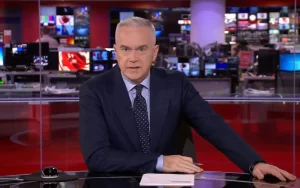For the first time, organisations have access to a workforce across five generations, with Baby Boomers working alongside Gen Z.
While this may present some challenges, there is a huge opportunity to utilise intergenerational learning, and embrace different opinions, knowledge and experiences.
Traditionally, mentoring and learning has been seen as a relationship between older generations, sharing their wisdom and experience to those younger than them. Although this way of learning is still hugely valuable, intergenerational learning, and reverse mentoring, sees different generations teaching and learning from one another. Understanding and supporting the idea that each generation can offer different skills, experiences and learnings, is a vital step in creating a strong workforce and filling skill and knowledge gaps. For both my own company and those that we work with, supporting a multi-generational workforce and encouraging learning from within, has become a well-deserved priority.
Fostering a culture of continuous learning can help build and maintain a workforce that feel empowered. It has been found that those who spend time learning at work are 39% more likely to feel productive and successful and 23% more ready to take on additional responsibilities. In my experience, I have seen how applying intergenerational learning allows employees to fulfil their curiosities in a diverse and engaged manner. Rather than relying on the likes of search engines to get answers, having the means to learn readily available through peer-to-peer communication, produces a workforce that is more eager to participate, whether they are the ones teaching or learning.
There are plenty of other benefits to encouraging intergenerational learning aside from filling knowledge gaps. Having different generations come together and collaborate is an incredibly effective way to encourage strong relationships across age groups and reduce siloes in the workforce. It can be a highly effective way to create a workforce with a strong sense of belonging and reduce feelings of loneliness in the workplace. Offering opportunities for different generations to contribute their knowledge and lead where they are able, but also be advance in areas they are less familiar with, can also support a strong sense of purpose.
As a true advocate for mentoring, I see huge value in reverse mentoring in particular which reverses the conventional learning and mentoring setup. Younger, often more junior employees, take the role of mentors to more senior team members and share fresh perspectives, technological adeptness, and contemporary insights. It can give those who may typically not have a ‘voice’ an opportunity to interact with, and teach, business leaders, managers and C-Suite members.
Harnessing this mentoring technique can help everyone across an organisation grow and develop, while providing individual empowerment and the opportunity to develop soft skills such as communication. Reverse mentoring can also help promote increased transparency across an organisation, encouraging people at every level to speak up on areas they’re keen to develop.
A recent study highlighted that 93% of organisations are concerned about employee retention and providing learning opportunities is currently the number one-way businesses are working to improve this. Reverse mentoring, and intergenerational learning is a hugely effective way to promote development and growth for all, and one which I hope more organisations globally will implement.
Regardless of how companies choose to build a learning culture, it is vital to pick one that ensures all workers across the different generations are engaged and feel supported, to reap the benefits of building a multi-generational workforce.
Read more:
Intergenerational Learning is Key for Building a Skilled and Engaged Workforce
Intergenerational Learning is Key for Building a Skilled and Engaged W …











